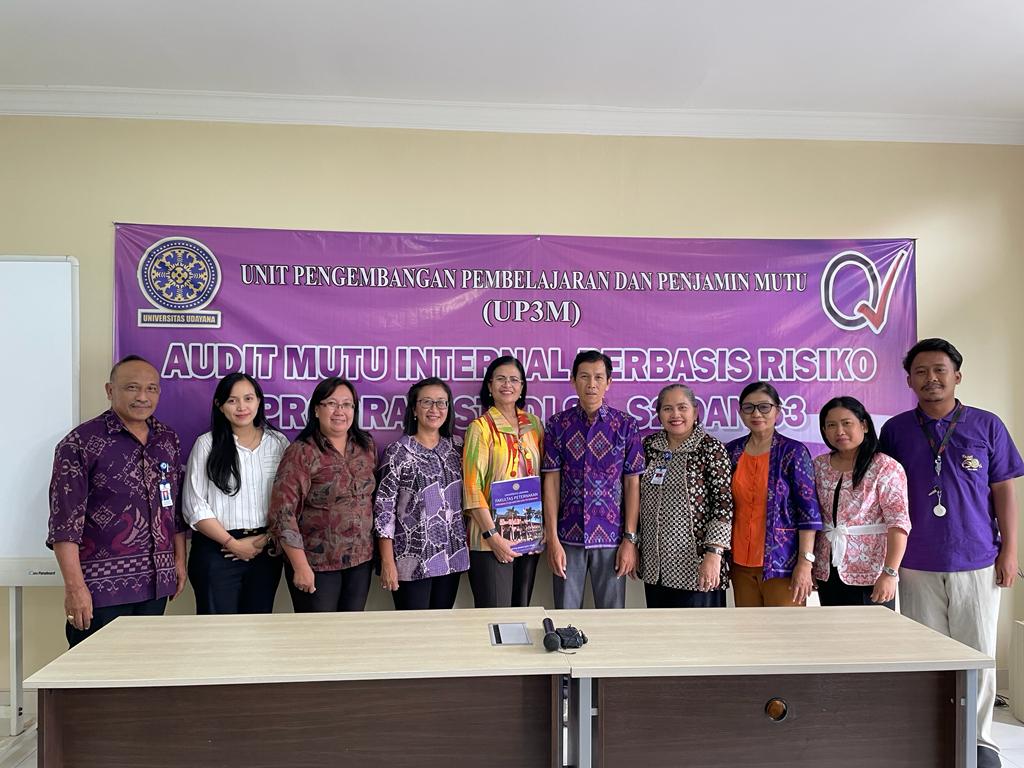Animal Science Study Program (S3) Faculty of Animal Husbandry Unud Improves Quality through Internal Quality Audit
One effort to improve the quality of higher education is to develop Quality Assurance in higher education. To ensure sustainable quality, the quality standards that have been determined and implemented will be monitored through quality audits. A Risk-Based Internal Quality Audit (AMI) needs to be carried out so that we can know what progress has been achieved and what has not been achieved. For this reason, AMI needs to be implemented in every part of the Faculty of Animal Husbandry, Udayana University. AMI implementation will be carried out by conducting a quality audit as a follow-up to the establishment and implementation of quality standards that have previously been socialized.
The Animal Science Study Program (S3) of the Faculty of Animal Husbandry Unud received the AMI Auditor Team (Friday, September 22, 2023). Located in the Academic Room, Fl. 1, Sudirman Campus Agrocomplex Building. which was attended by the Dean of the Faculty of Animal Husbandry, Udayana University, represented by Deputy Dean I for Academic and Planning Affairs Dr. Ir. Dewi Ayu Warmadewi, S.Pt., M.Si., IPM., ASEAN Eng; Coordinator of Doctoral Animal Science Study Program; UP3M Team and TPPM Team for S3 Study Program, within the Faculty of Animal Husbandry Unud.
The implementation stages and work mechanisms are determined based on an agreement between the auditor and the auditee. The AMI Auditor Team consists of 5 people with Lead Auditor Dr. I Putu Ari Astawa, S.Pt., MP. with members Dr. Ir. Eny Puspani, S.Pt., M.Si; Dr. Ir. Dewi Ayu warmadewi, S.Pt., M.Sc., IPM., ASEAN Eng.; Prof. Dr. Ir. Gusti Ayu Mayani Kristina Dewi, MS., IPU., ASEAN Eng., and Prof. Dr. Ir. Ni Wayan Siti, M.Sc. The scope of the audit includes Quality System Documents, Management Policies and commitments, and Planning and targets. The aim of AMI activities is to evaluate non-compliance between standards and implementation and ensure standards are running well.
This risk-based AMI activity is expected to be beneficial for Udayana University, Faculties/UPPS, and Study Programs within Unud regarding how to identify risks, analyze and manage risks that have the potential to reduce the quality of Higher Education, as well as realize sustainable quality improvements at Udayana University so that Study Programs and Faculties / UPPS will be better prepared to face external quality audits or accreditation/re-accreditation.









